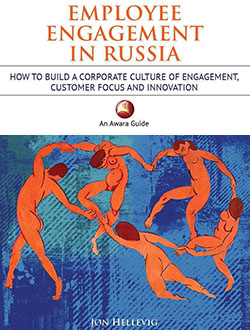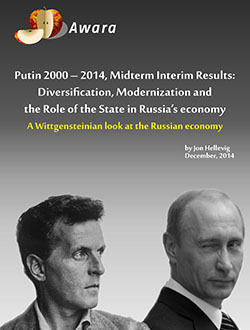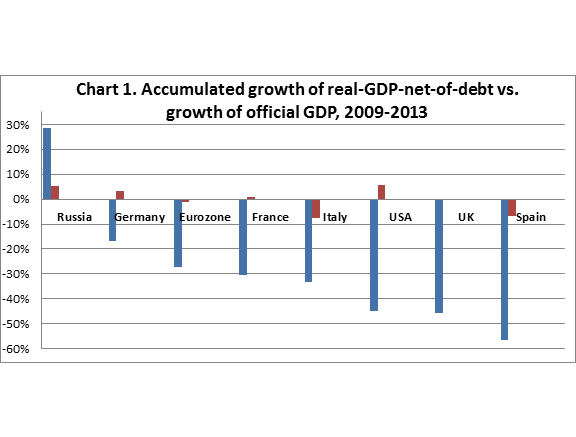
Employee Engagement in Russia
Employee engagement is about how to achieve a company’s strategic goals by creating the conditions for human resources to thrive and, for each staff member, manager and executive to be fully switched on in their jobs so as to deliver their best efforts in the best interest of the business.
The theory of employee engagement, when stated simply, looks like common sense. According to the theory, leaders of an organization must ensure that all their staff members are fully engaged, that they are fully switched on at their jobs. The ideal is that the staff is fully committed, in the same way entrepreneurs care for their businesses or people in general look after their own household. Being engaged simply means that you are fully involved and interested in the work so that it really holds your attention and inspires you to do your best.
By: Jon Hellevig

Study on Russian economy:
Putin 2000 – 2014, Midterm Interim Results:
Diversification, Modernization and the Role of the State in Russia’s Economy
A Wittgensteinian Look at the Russian Economy
By: Jon Hellevig
A study released by Awara, a Russia-based consulting firm, shows that Russia’s economy is not as dependent on oil and gas as is commonly claimed. It researches the development of key indicators of the economy from 2000 to 2013. The crisis-torn economy battered by years of robber capitalism and anarchy of the 1990’s, which Putin inherited in 2000, has now reached sufficient maturity to justify a belief that Russia can make the industrial breakthrough that the President has announced.

Study on Real GDP Growth Net-of-Debt
By: Jon Hellevig
This groundbreaking study by Awara reveals that the real, debt-adjusted, GDP growth of Western countries has been in negative territory for years. Only by massively loading up debt have they been able to hide the true picture and delay the onset of an inevitable collapse of their respective economies. The study shows that the real GDP of those countries hides hefty losses after netting the debt figures, which gives the Real-GDP-net-of-debt.

Study on Effects of Putin’s Tax Reforms 2000-2012 on State Tax Revenue and GDP
By: Jon Hellevig
The taxation system, or rather the lack of a transparent, predictable and stable taxation system, has widely been considered as one of the main reasons for the economic woes that Russia experienced during the 1990s, after the country entered the shaky path of democracy and market economy. But after the tax reform was ushered in beginning from 2000 the taxation system went from being the big hindrance for investments and economic growth to being the locomotive of Russian economic success.

Global Survey on Total Payroll Taxes 2014
By: Jon Hellevig
Of all the money that goes towards salaries and wages what portion is actually received in hand by the employee net of taxes and all social security contributions? The specific question we posed was: What is the total pay-roll cost of an employer in order for an employee to get X amount of Euros (US dollars) in hand?

Expressions and Interpretations. Our perceptions in Competition. – A Russian case
By: Jon Hellevig
Expressions and Interpretations is a book on philosophy, law, moral, democracy, economy and other perceptions in competition. The book deals with issues of social science fiction and gives the reader the long lost missing key that fits into the lock of scientific mysteries. The “truth” is shown to be a whirlpool of feelings, which are subject to our expressions and interpretations. – Through this insight law is defined as a “competition of arguments” and justice as “competitive justice”. – The book is intended for all people that want to gain an insight in to the scientific reality.
